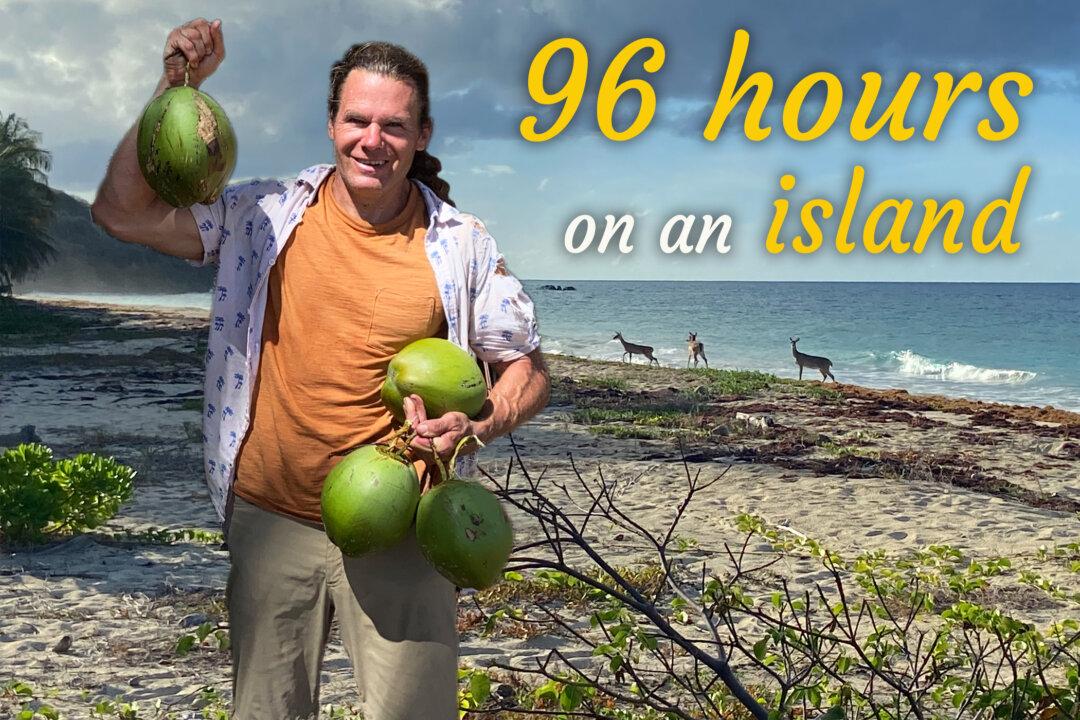A nature and primitive skills expert, who visited a subtropical island for a days-long “survival challenge” in 2013, has revisited the same island 10 years later and noticed that his skills have improved. This time, he made it through 96 hours with no fresh water and very little food, drawing on the wisdom of simpler times to stay alive.
Chad Zuber, 50, is a father of three from Los Angeles, California. He gave up his pursuit of a “normal career” to focus on his love of nature and survival skills and shares his adventures on his popular YouTube channel. In 2013, he traveled to the tiny island of Isla Culebra off the east coast of Puerto Rico—which he believes to be the least developed of all the Caribbean islands, to test whether his skills were enough to keep him alive.





